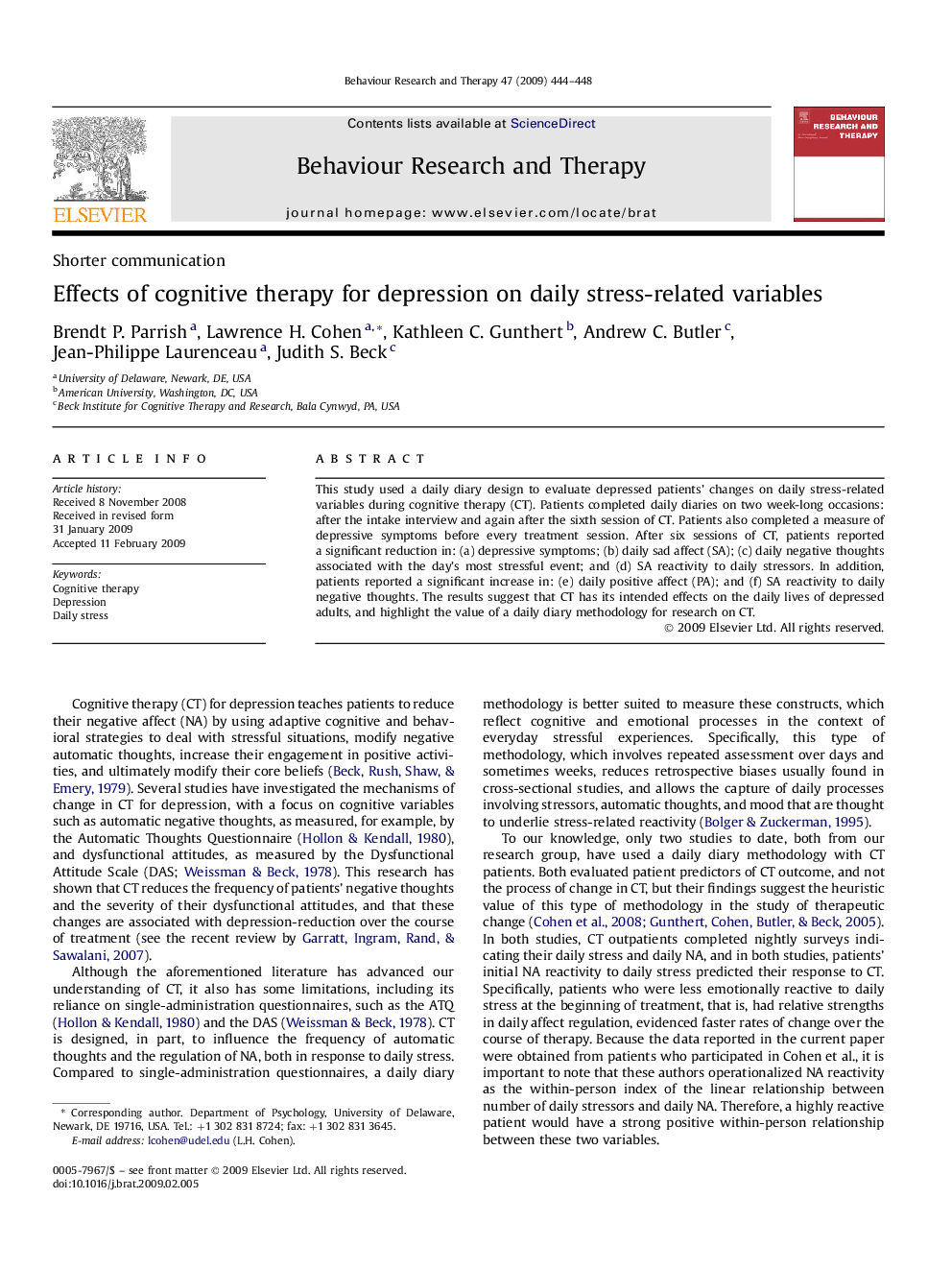| Article ID | Journal | Published Year | Pages | File Type |
|---|---|---|---|---|
| 10444772 | Behaviour Research and Therapy | 2009 | 5 Pages |
Abstract
This study used a daily diary design to evaluate depressed patients' changes on daily stress-related variables during cognitive therapy (CT). Patients completed daily diaries on two week-long occasions: after the intake interview and again after the sixth session of CT. Patients also completed a measure of depressive symptoms before every treatment session. After six sessions of CT, patients reported a significant reduction in: (a) depressive symptoms; (b) daily sad affect (SA); (c) daily negative thoughts associated with the day's most stressful event; and (d) SA reactivity to daily stressors. In addition, patients reported a significant increase in: (e) daily positive affect (PA); and (f) SA reactivity to daily negative thoughts. The results suggest that CT has its intended effects on the daily lives of depressed adults, and highlight the value of a daily diary methodology for research on CT.
Related Topics
Health Sciences
Medicine and Dentistry
Psychiatry and Mental Health
Authors
Brendt P. Parrish, Lawrence H. Cohen, Kathleen C. Gunthert, Andrew C. Butler, Jean-Philippe Laurenceau, Judith S. Beck,
